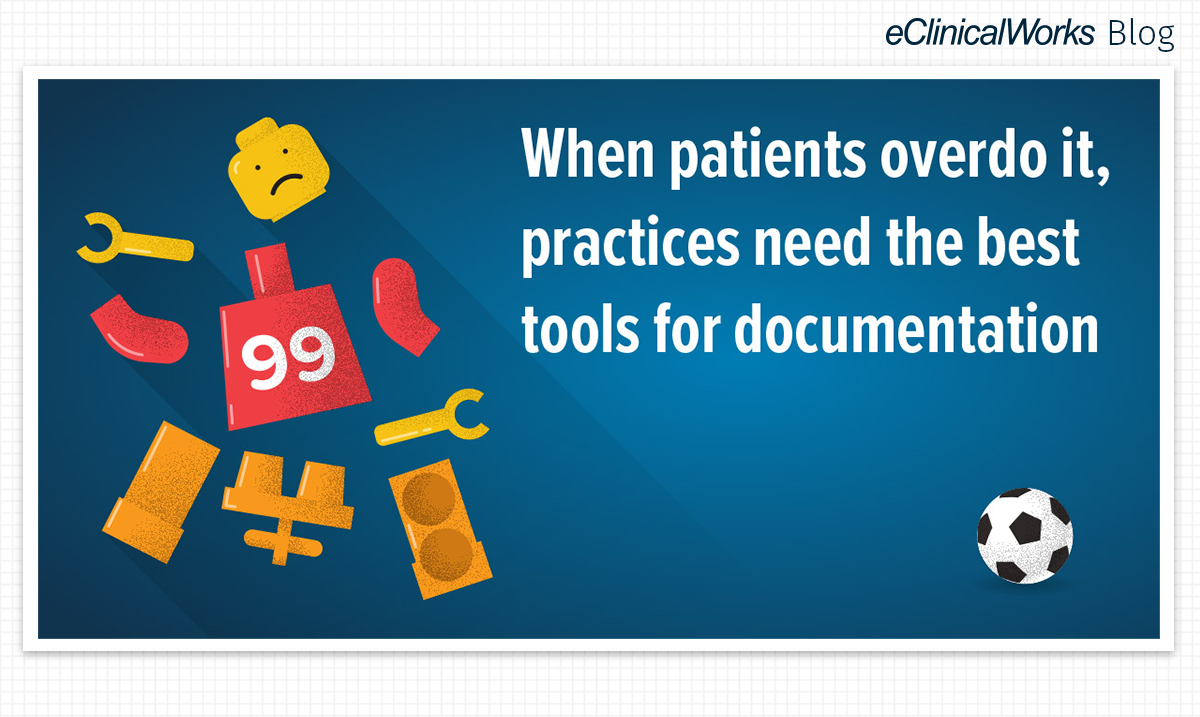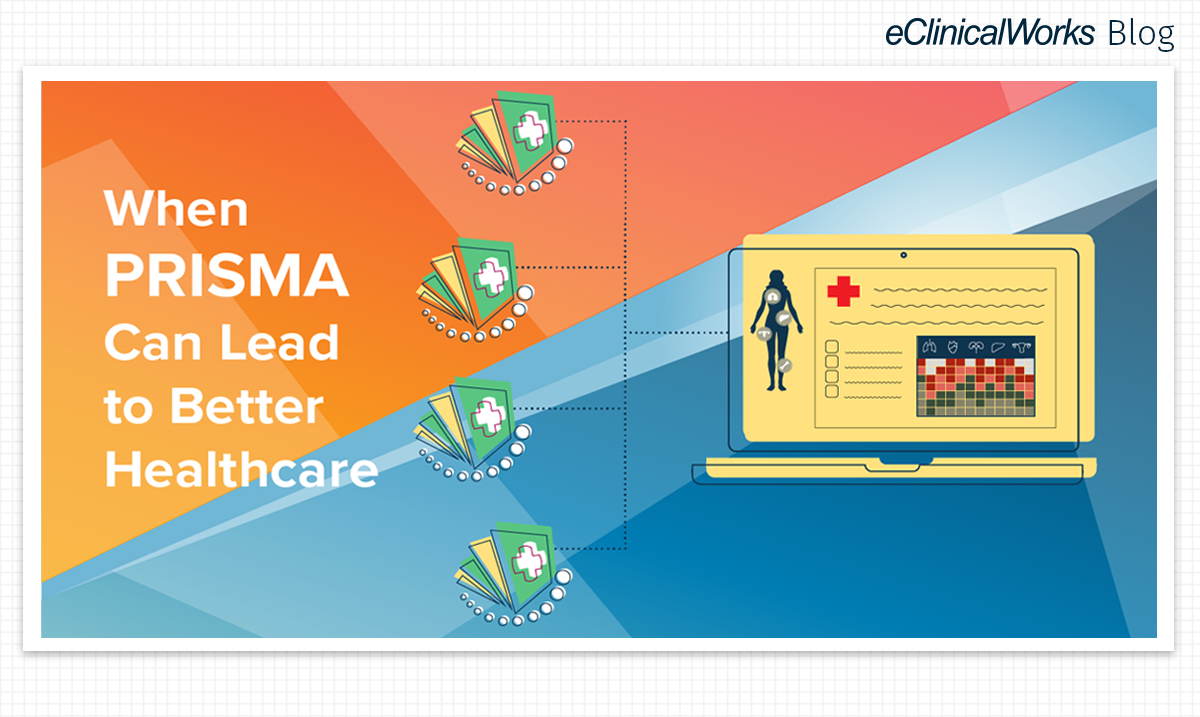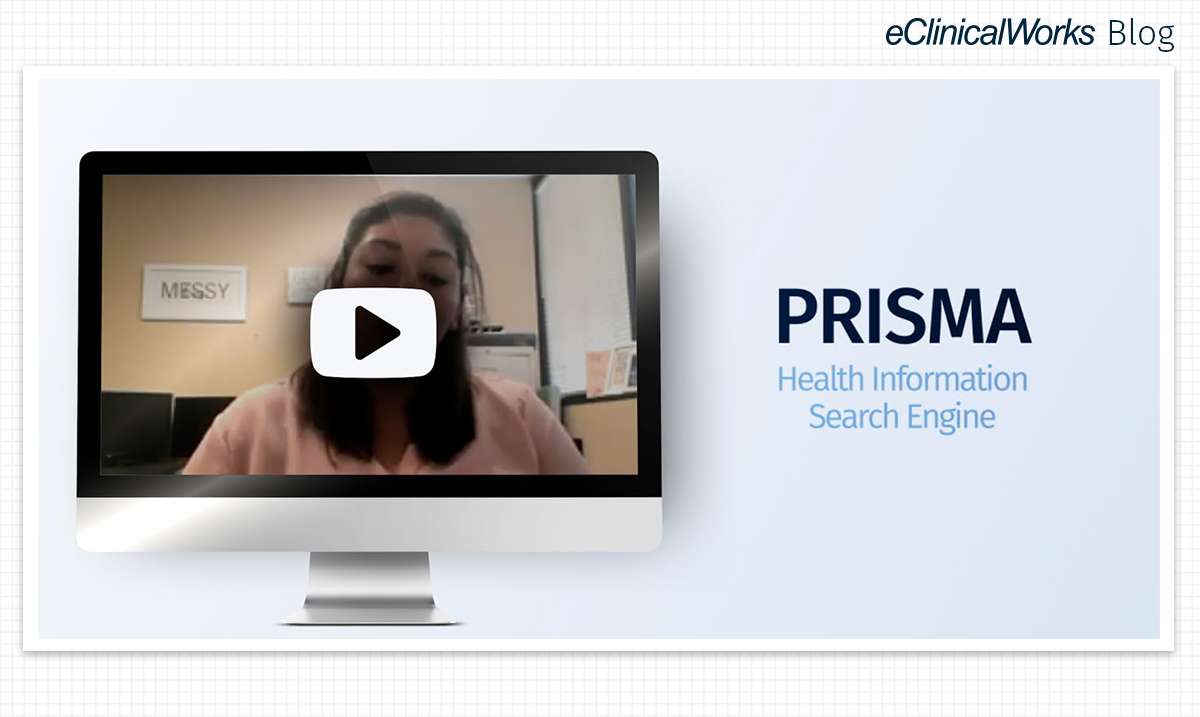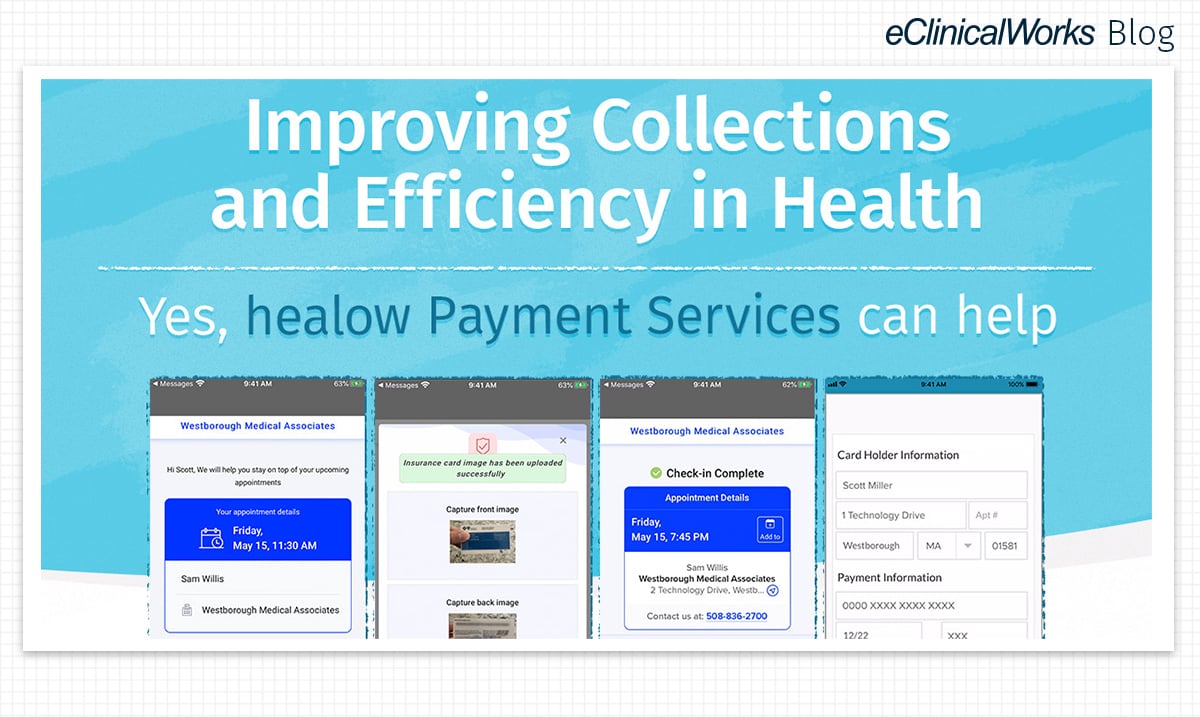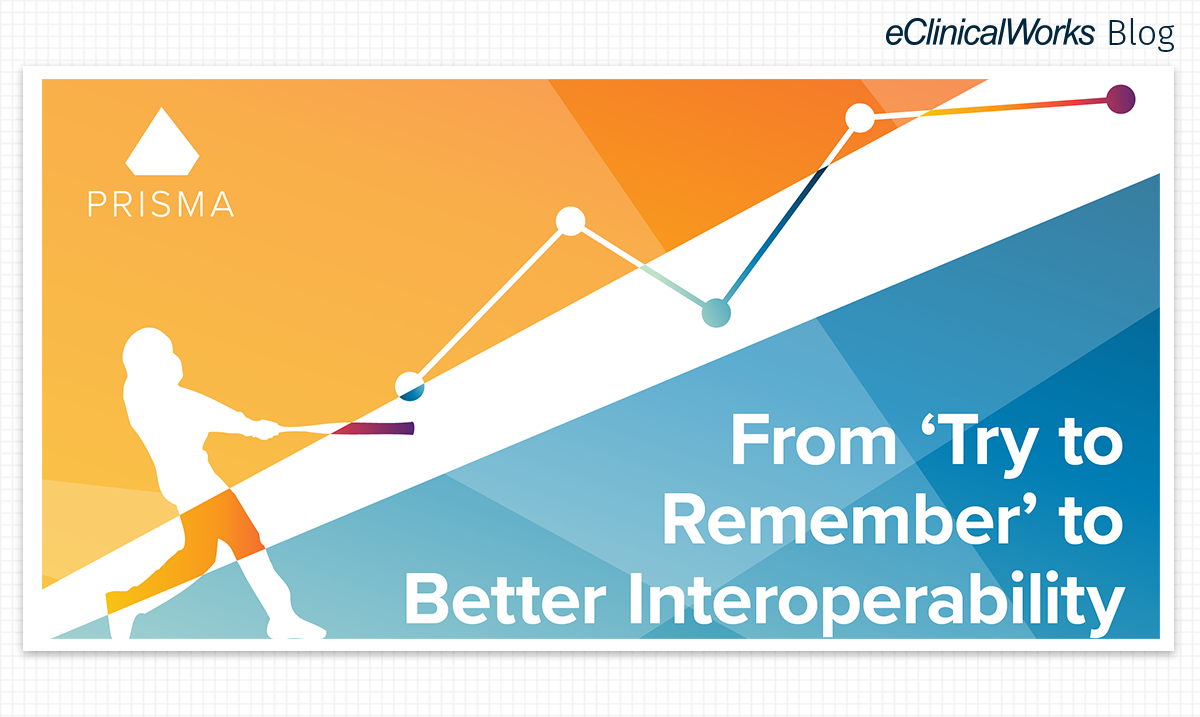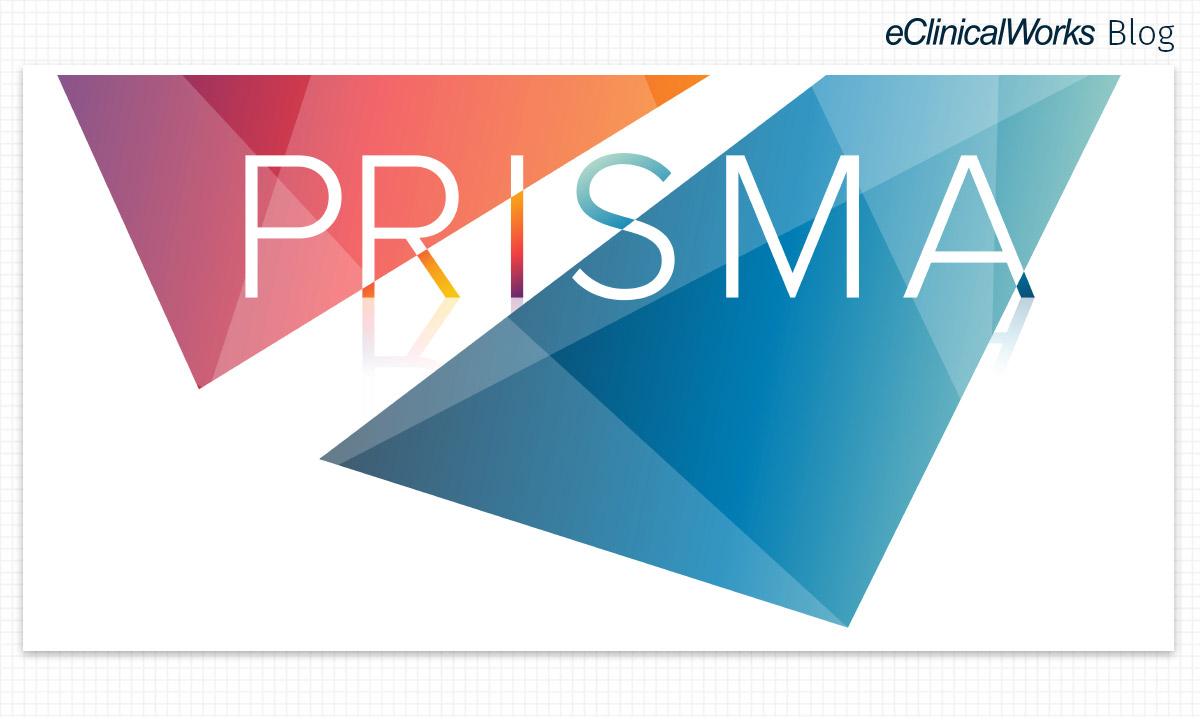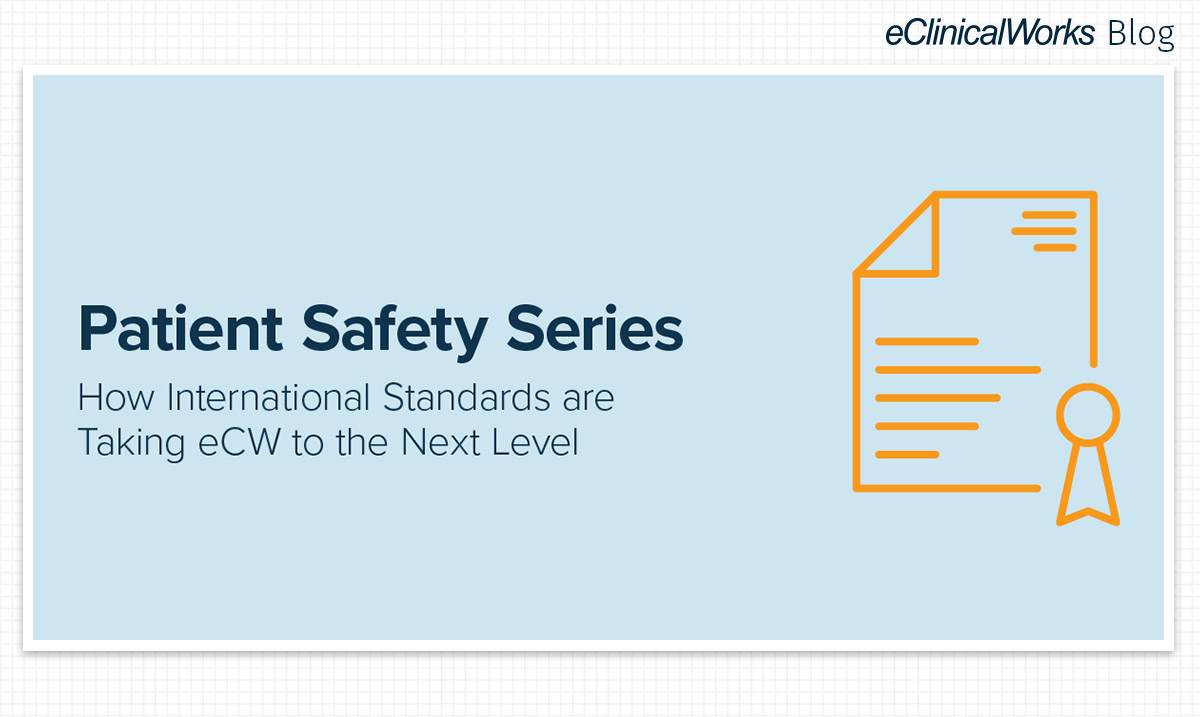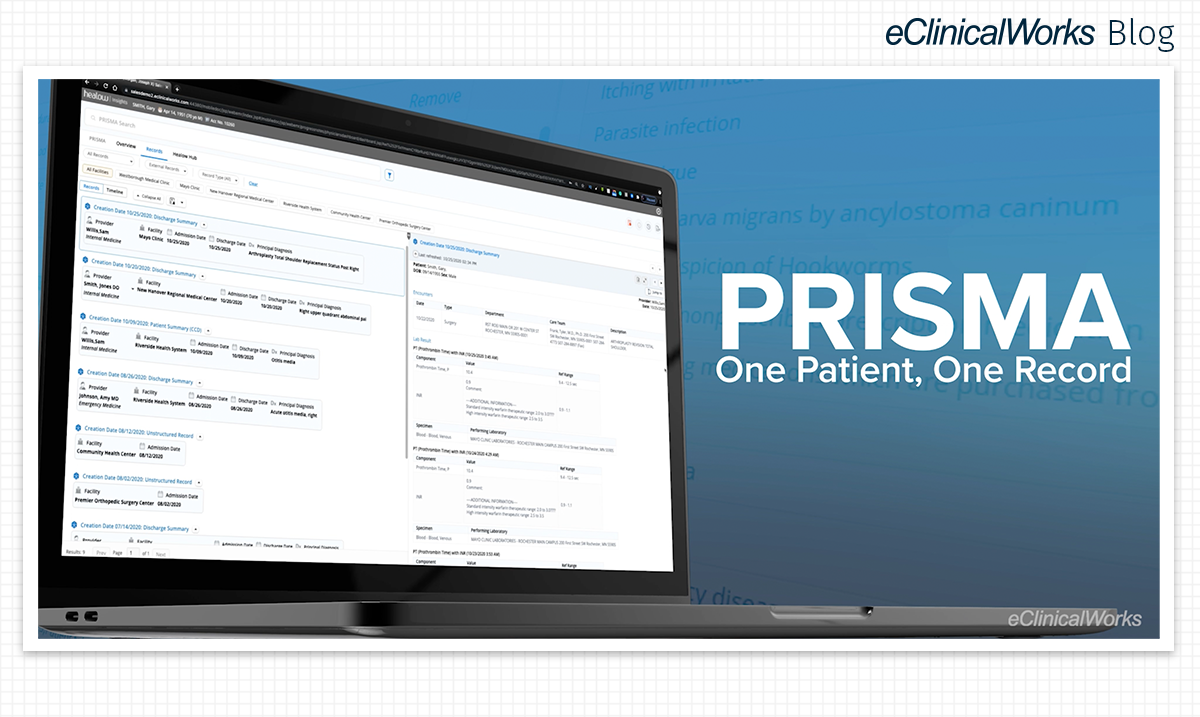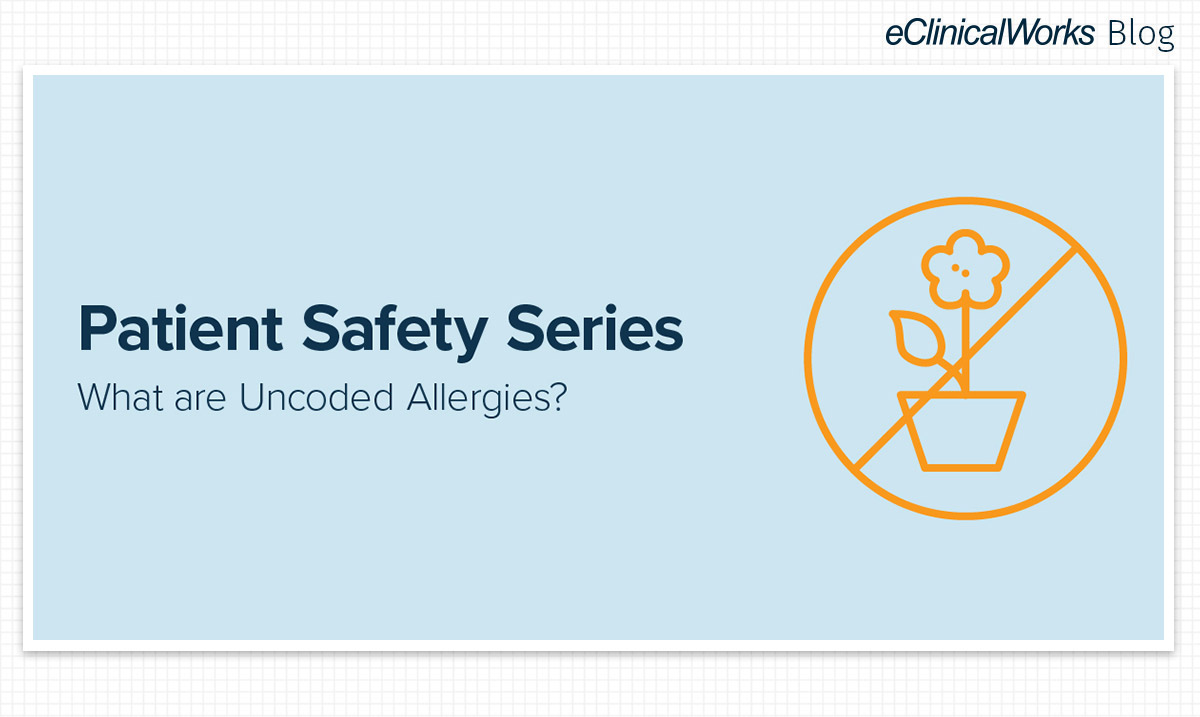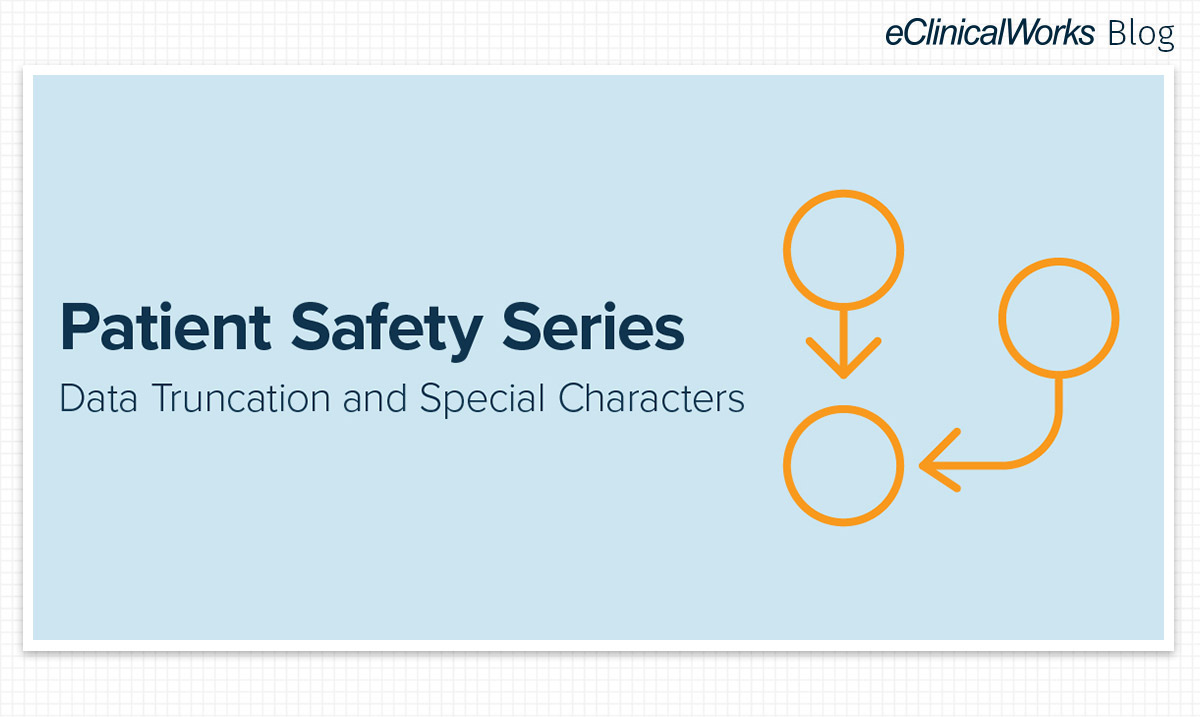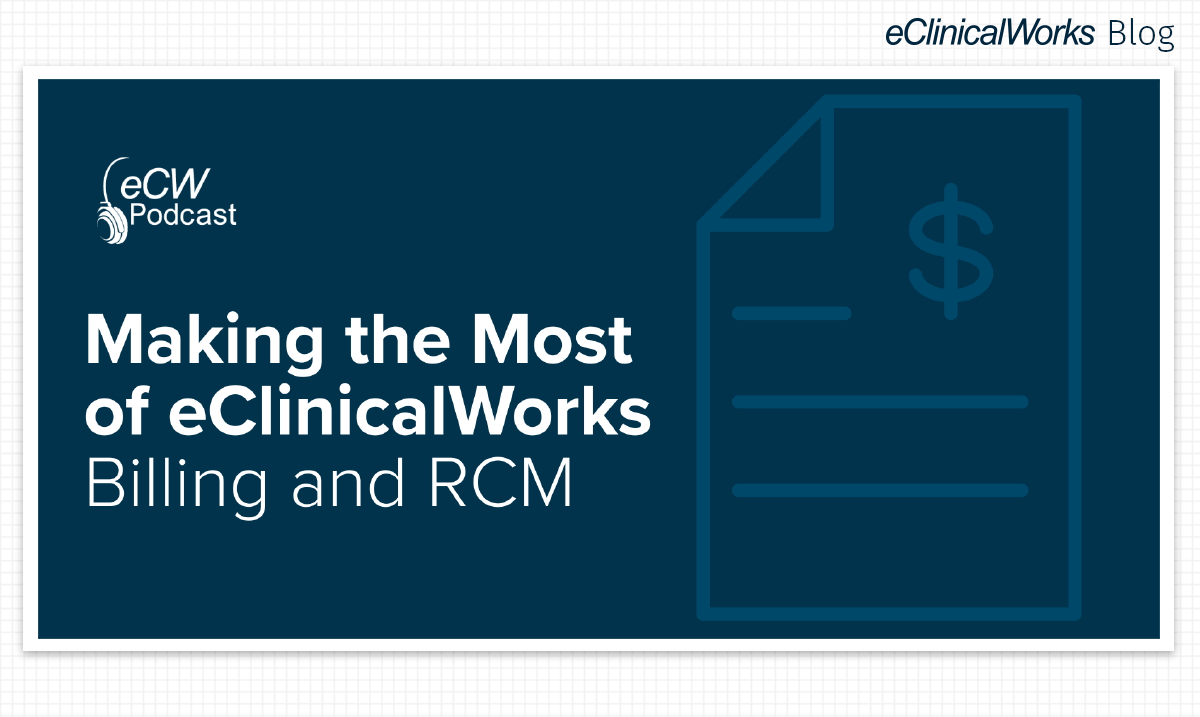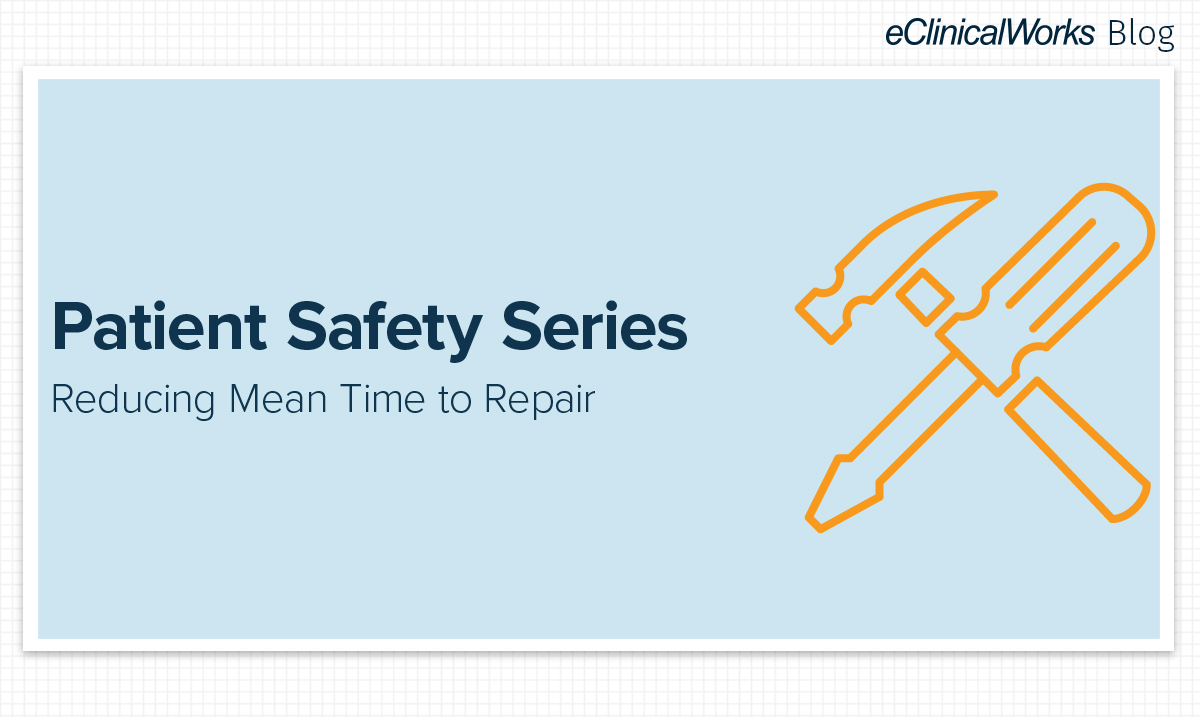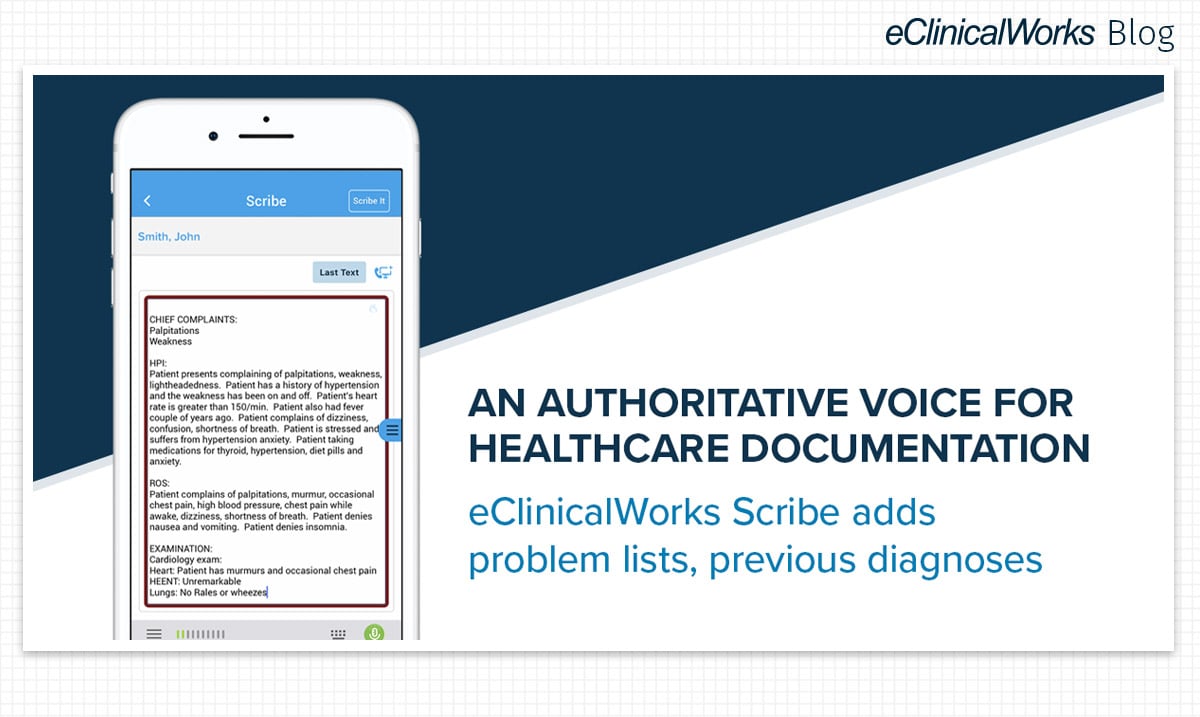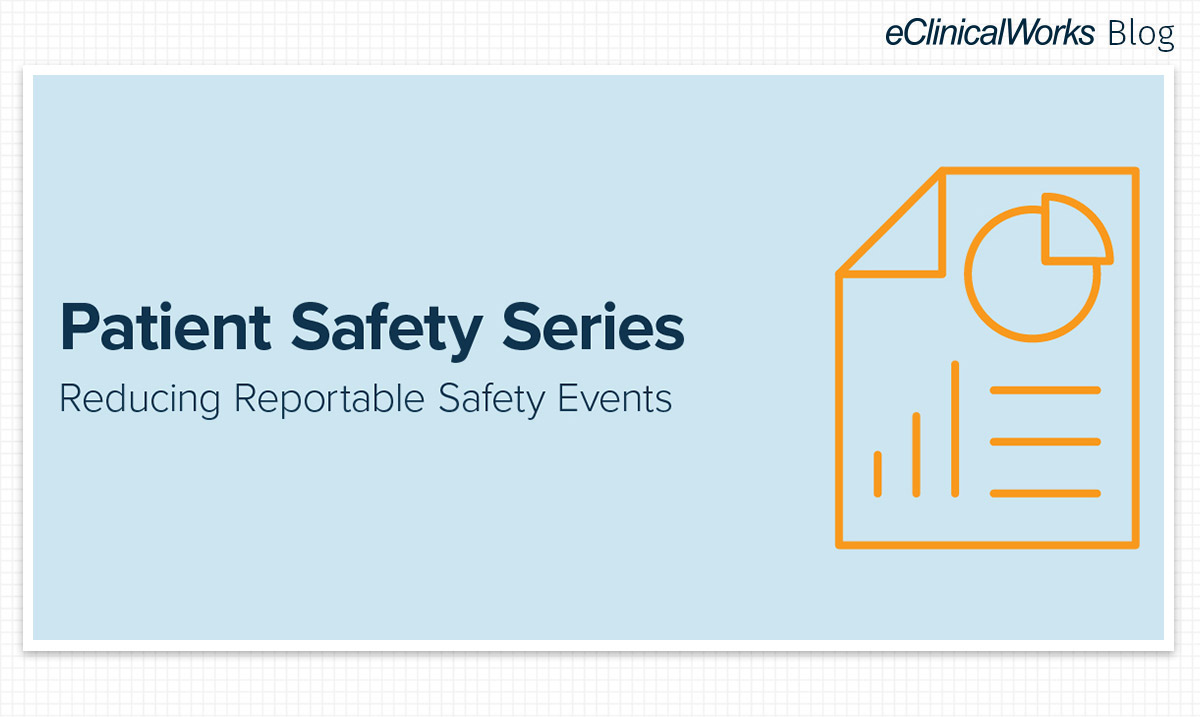Whether you live in the mountains, by the sea, or in town, summer is great for getting out and staying active. It’s also — oops! — prime season for injuring one or more of those complicated joints, tendons, and ligaments that allow humans to walk, run, jump, bend, twist, and move in complex ways.
Recent Posts
Summer Can Mean Orthopedic Trouble and eClinicalWorks Can Help
When PRISMA Can Lead to Better Healthcare
Better interoperability when records appear to be lacking
There’s no doubt that PRISMA, the eClinicalWorks health information search engine, is a powerful tool for obtaining a complete, searchable view of patient health histories. Still, many practices may be wondering how it fits into their workflows to change how they practice medicine.
Using PRISMA to Create Better Patients Records
How Zeid Medical Group leverages the power of interoperability
Zeid Medical Group runs women’s health and pediatric clinics in Tyler and Longview, Texas, that serve about 1,000 patients each month. Like any busy medical practice today, they see a mix of established and new patients who come from all walks of life and have medical histories that range from simple to complex.
Improving Collections and Efficiency in Healthcare
Everyone knows — or assumes they know — that a certain percentage of revenue is lost when using traditional methods of collecting healthcare payments. After all, if you print and mail several notices, cash checks, and spend time posting and reconciling payments, a lot can go wrong.
From ‘Try to Remember’ to Better Interoperability With PRISMA
How eClinicalWorks is building on the healthcare IT revolution
In less than a generation, there has been a dramatic transformation in interoperability, the sharing of clinical patient data among providers and facilities.
For many years, the standard for interoperability could best be described as “Try to remember.” Physicians relied upon in-house records, questionnaires, and information gathered during patient visits.
Winning the Medical Information Game
How PRISMA can help your practice with interoperability
Your providers thrive when they have access to the latest information on health, illness, and treatments. A 2006 study by the American Medical Informatics Association concluded that when physicians need good information they seek out gold-standard sources, including high-quality medical journals and reputable websites that specialize in their area of expertise.
Improving Patient Safety Series: How International Standards Are Helping
This is the final blog in a series where we focus on how eClinicalWorks® continues to lead the healthcare IT industry in patient safety.
Achieving the highest possible levels of patient safety in healthcare IT is a multifaceted process that includes proper handling of Reportable Events, reducing the Mean Time to Repair any such events, and addressing critical details such as data truncation, the handling of special characters, and uncoded allergies.
Record Retrieval Made Easy With PRISMA
Patients today are likely to visit many different healthcare facilities to receive care. When going from place to place, it’s possible that records may not be as accessible to providers as necessary. That’s why we’ve created PRISMA, the eClinicalWorks® health information search engine.
Improving Patient Safety Series: Uncoded Allergies
This is the fourth of five blogs in a series where we focus on how eClinicalWorks® continues to lead the healthcare IT industry in patient safety.
The truth about allergies
The difference between a coded and uncoded allergy could be a matter of life and death. Each year in the United States, 200,000 people require emergency medical care for allergic reactions to food. And drug-based allergic reactions account for the most allergy-related deaths. These severe drug reactions may affect a staggering 10% of the world’s population — and many of these adverse interactions may have been prevented.
Improving Patient Safety Series: Data Truncation and Special Characters
This is the third of five blogs in a series where we will focus on how eClinicalWorks® continues to lead the healthcare IT industry in patient safety.
Sometimes, you may have a lot to say online and there just isn’t enough room to say it. Worse yet, you may not even realize that there isn’t enough space and that half the things you had been writing out were not being communicated to other users or readers.
As irritating as this might be for a spreadsheet documenting how many bass you may have caught on a fishing trip, being unaware of certain character and symbol limitations regarding a patient visit in an Electronic Health Record (EHR) could lead to a potential patient safety issue.
All EHRs face data-entry limits, but an awareness of these limitations is what is critical to success. One missing symbol or an invisible line of text can be merely annoying in many contexts; in healthcare, it can have a serious impact on someone’s health.
Make Billing Easier and Better
The advantages of choosing eClinicalWorks
According to industry research firm IBISWorld, outsourced medical billing in the U.S. grew by an average 3.1% annually between 2015 and 2020, to $4.3 billion. More visits, more government regulations, and more complexity in healthcare are driving growth in an area where keeping a close eye on the books really pays off.
At eClinicalWorks®, we view medical billing and Revenue Cycle Management (RCM) as integral parts of delivering quality care. We offer customers a choice of do-it-yourself billing or an RCM service model in which eClinicalWorks does all the work.
Improving Patient Safety Series: Reducing Mean Time to Repair
This is the second of five blogs in a series on how eClinicalWorks® continues to lead the healthcare IT industry in patient safety.
All software is complicated, but software in the healthcare industry comes with an added twist: The safety of patients depends on the software being reliable and performing as expected each and every day. When safety problems — Reportable Events — arise, it is important to address them quickly and thoroughly.
A software company’s response to Reportable Events is measured by how long it takes on average to notify customers about them and develop fixes for them. That measure, which varies depending on the severity and urgency of a given risk, is known in the industry as Mean Time to Repair (MTTR). For example, low-risk events must meet an MTTR of 75 days or fewer, medium-risk events 45 days or fewer, and high-risk events within just seven days.
An Authoritative Voice for Healthcare Documentation
eClinicalWorks Scribe adds problem lists, previous diagnoses
Given the diverse, complex tasks of modern medicine, it is likely that human scribes will always have a role to play in healthcare. Nonetheless, a May 2021 article in EHR Intelligence notes that health systems nationwide continue to adopt scribe technologies where the powers of computing and artificial intelligence can improve efficiency without compromising safety.
eClinicalWorks® has long understood that documentation demands solutions that are as clinically accurate as they are convenient.
Improving Patient Safety Series: Reducing Reportable Safety Events
This is the first of five blogs in a series focusing on how eClinicalWorks® continues to lead the healthcare IT industry in patient safety.
Mistakes happen; it’s an unfortunate part of life, of being human. It’s what we learn and how we adapt after recognizing an error that prepares the way for a safer future for all and helps prevent similar incidents.
The chances of being harmed in a plane crash are one in 11 million. The chances of a patient being harmed while receiving care, much more likely – one in 300!.
When Neurological Care Cannot Wait
Neuro2Go: A tool to overcome limitations of referrals
Every medical ailment demands attention, but some ailments are more urgent than others. Where a patient might be able to wait a week to have a sore toe examined, almost any problem with the central nervous system demands prompt examination and diagnosis.

